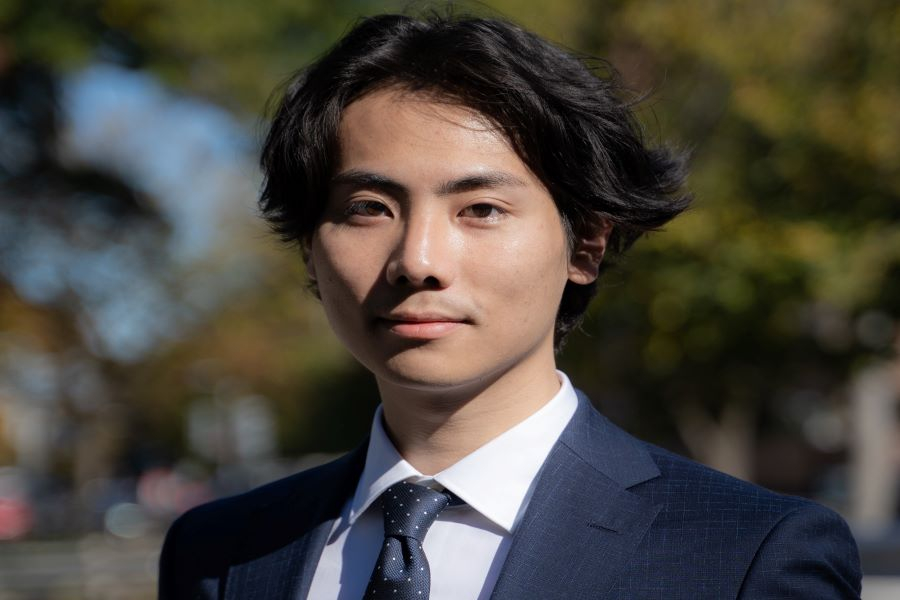Preparing for a Policy Career in a Fast-Changing World

Hiromitsu Higashi
MAIR '23
1. What encouraged you to apply to Johns Hopkins SAIS?
I applied to SAIS for two major reasons. First, SAIS offers unparalleled networking opportunities for its location and alumni community. Situated in the heart of Washington, DC, SAIS is within walking distance from government institutions, think tanks, and international organizations. In addition, SAIS has an exceptional track record of sending its students into leadership roles in a wide range of sectors and industries. This opens up many windows of opportunities for me.
Second, the flexible MAIR allows me to explore in-depth issues that matter to me the most. Such flexibility is bolstered by SAIS’ dedication to quantitative training in economics and data analysis and a variety of professional skills courses. I believed the program would offer me the most appropriate preparation for a policy career in this fast-changing world.
2. What program are you in and what do you hope to gain from it?
I am enrolled in the MAIR program with a functional focus on Technology and Culture (T&C) and regional focus on Asia. I was lucky enough to attend the G20 Osaka Summit in 2019. The summit culminated in the launch of Data Free Flow with Trust (DFFT), a multilateral data governance agreement. This profoundly impacted my academic and professional interests as it surprised me how important technology has become in international affairs and how sometimes traditional IR scholarship may struggle to catch up with this rapidly changing field of study.
This event, combined with my work experience, made me believe that scalable, properly regulated, tech-powered financial solutions conducive to private capital inflow remain the key to addressing the world’s most complex developmental challenges. Through the MAIR program, I hope to explore and research a wide array of technological issues—ranging from data governance, cybersecurity, digital development, to digital rights—across the Indo-Pacific theater, an expansive region defined by immense developmental potential, rapid digitalization, and rising geopolitical instability. Put it simply, upon completion of this program, I hope to be able to see and understand the future.
3. What were you doing before attending the school?
I spent most of my life in Japan, China, and Canada. I graduated from the University of Toronto in 2020 and worked remotely for a year. I interned at the Stimson Center’s China program, a consulting firm, CollaborateUp, and most recently at the Project on Prosperity and Development within the Center for Strategic and International Studies (CSIS), where I researched digital development and financial inclusion. Throughout this time, I was also a senior researcher at the G7 Research Group at the University of Toronto, where I led the studies on global arms control governance and Japan’s summit diplomacy.
4. What has been one of your favorite experiences or classes at the school so far?
My favorite experience has been my work with the SAIS Student Government Association (SGA). As the First-Year Representative, I am responsible for responding to student inquiries, planning fun and engaging events, and creating the weekly event newsletter Blueser. In this role, I have been able to engage many SAIS students and faculty members and participate in the school’s robust student life, learning from diverse perspectives and building my network while giving back to the SAIS community in a meaningful way.
5. As a first year, what are some things you are looking forward to?
As a first-year student, I look forward to leveraging SAIS’ powerful student and alumni community to rapidly build up my network. As in-person activities gradually return, I want to take advantage of this golden opportunity to connect with as many students and faculty members as possible, as such interactions spark inspiration and create life-long friendships and relationships. Additionally, I want to equip myself with a set of technical, transferable skills such as programming and data visualization through SAIS’ professional education to prepare myself for a summer job relevant to my field of study.
6. What do you hope to do with your degree after you graduate?
Following graduation, I plan to work in the technology sector. I hope to leverage my regional understandings, linguistic capacities, and skills acquired from a liberal arts background to develop cutting-edge, out-of-the-box insights to help the tech industry navigate the changing geopolitical landscape and contribute to the global common goods. The COVID-19 pandemic has accelerated the global digitalization process, which, I believe, has exceeded some governments’ management capacities and fallen short of generating enough public trust. My most sincere wish is to play a role in finding sustainable, ethically sound technological solutions centered on liberal democratic values to help tackle the world’s most pressing developmental challenges.
Back to Student Stories